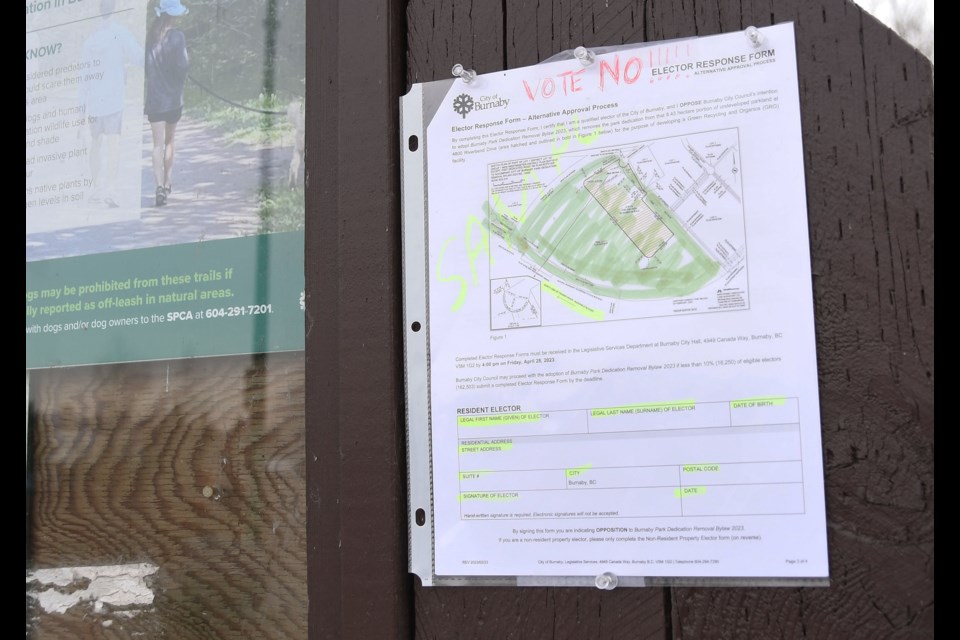Burnaby has only attempted to use a little-known voting procedure called the “alternative approval process” once, and it might be the only time – at least when it comes to parkland.
After a contentious and ultimately cancelled decision to use an AAP to remove more than 20 acres of parkland at Fraser Foreshore Park to make way for a green waste and organics (GRO) processing facility, Coun. Sav Dhaliwal is suggesting council never attempt to use the process for parkland again.
An AAP requires 10 per cent of a city’s electorate to send a ballot in opposition to a proposed bylaw to show the issue is “significant,” according to provincial guidelines.
Dhaliwal made a motion at a council meeting on March 27 that staff report on the advisability of changing the park dedication bylaw so referendums, and not AAPs, are the only option for Burnaby city council to remove any portion of parkland.
City council cancelled the AAP on March 20 and formally rescinded the bylaw to remove the park dedication at the March 27 council meeting.
Dhaliwal’s motion noted the AAP regarding Fraser Foreshore “was met with vigorous opposition and public cynicism” and added residents said a referendum “was a more appropriate tool, rather than the alternative approval process used, to receive public consent to un-dedicate parkland.”
In a survey by the NOW of five cities neighbouring Burnaby, only one AAP dealt with more than 20 acres of land, and it was not removed as parkland but rather re-dedicated as “urban forest park.”
Dhaliwal’s motion passed unanimously. Staff will report to council with recommendations at a later date.
Delegations and Burnaby council
It wasn’t the only motion Dhaliwal made regarding the GRO project.
He referred to a letter council received from Burnaby resident and president of neighbourhood group Friends of Discovery Park, Parvin Chami.
Chami wrote to council before the AAP was cancelled, expressing frustration that she was not allowed to present to council as a formal delegation opposing the GRO facility.
Chami said to the NOW before the AAP was cancelled: “We need to be able to communicate with them (council),” she said, adding it was “difficult” to reach councillors individually. “But when you go to the council and talk to them collectively, it has a different effect.”
Before the AAP was cancelled on March 20, city spokesperson Chris Bryan told the NOW that delegations were not denied, but rather “put on hold until after the AAP process was complete.”
This was because the AAP form was “intended to be the feedback mechanism for all residents,” according to Bryan.
Dhaliwal motioned for Chami’s letter to be referred to the executive committee, asking the committee to review the delegation process.
“See what that is, and how that works, so we can understand and properly see what the role is of both the council, as well as the legislative office,” Dhaliwal said.
The motion passed unanimously.





